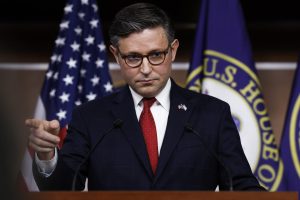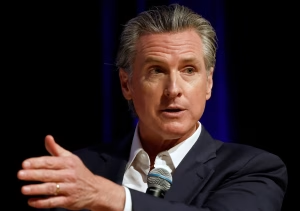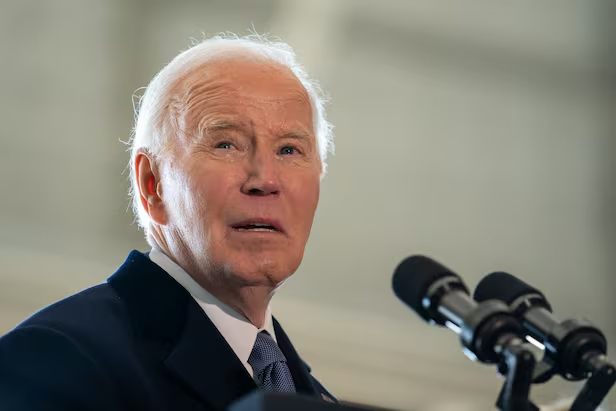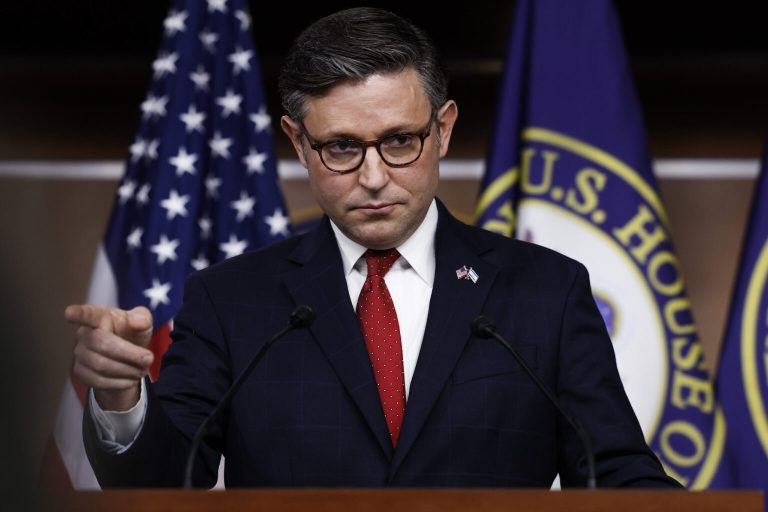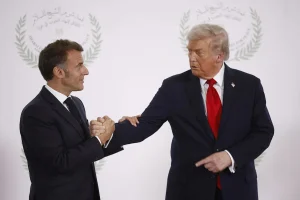In a rare show of praise for his successor, former President Joe Biden publicly commended Donald Trump on the successful brokerage of a ceasefire in Gaza, marking a surprising departure from his usual reticence toward Trump’s achievements. The announcement comes amid renewed global attention on Trump’s recent diplomatic efforts, including peace deals between Armenia and Azerbaijan, and Pakistan and India, and his ongoing campaign for the 2025 Nobel Peace Prize.
Trump, 79, has remained a polarizing figure since losing the 2020 election, regularly criticizing Biden on a near-daily basis. His focus on international diplomacy has been both celebrated and critiqued, juxtaposing his high-profile successes abroad with controversial domestic actions—such as deploying the National Guard in Washington, D.C., to relocate homeless individuals. Nonetheless, the ceasefire in Gaza has been hailed as a historic, albeit temporary, resolution to one of the most persistent humanitarian crises in recent years.
The Gaza Ceasefire Context
The ceasefire comes nearly two years after Hamas launched a large-scale attack in southern Israel on October 7, 2023, which led to an extended conflict in the Gaza Strip. During this period, the militant group held Israeli hostages, while Israeli authorities detained Palestinian individuals in reprisal. The protracted violence resulted in widespread civilian casualties and a humanitarian emergency in Gaza, drawing international concern and calls for intervention.
Trump’s peace plan outlined a phased approach for Israeli withdrawal from Gaza. According to reports from the BBC and other international outlets, the initial stage of the withdrawal would leave approximately 55 percent of the territory under Israeli control. The second phase would reduce occupation to roughly 40 percent, with the final phase establishing a “security buffer zone” and leaving around 15 percent of Gaza under military oversight. An international force, comprised primarily of troops from Arab and Muslim nations, would oversee security within the enclave, providing a layer of neutral enforcement intended to maintain stability.
With the completion of these phases, all surviving hostages were released, culminating in a rare moment of bipartisan praise and relief.
Biden’s Uncharacteristic Praise
On social media, Biden expressed gratitude for the resolution of the hostage crisis while acknowledging Trump’s role in facilitating the ceasefire. In a series of tweets, he wrote:
“I am deeply grateful and relieved that this day has come—for the last living 20 hostages who have been through unimaginable hell and are finally reunited with their families and loved ones, and for the civilians in Gaza who have experienced immeasurable loss and will finally get the chance to rebuild their lives.”
In addition to recognizing Trump, Biden emphasized the work of his own administration in laying the groundwork for the ceasefire. “The road to this deal was not easy. My Administration worked relentlessly to bring hostages home, get relief to Palestinian civilians, and end the war. I commend President Trump and his team for their work to get a renewed ceasefire deal over the finish line,” he wrote.
Biden concluded his remarks by outlining the broader aspirations for peace in the region: “Now, with the backing of the United States and the world, the Middle East is on a path to peace that I hope endures and a future for Israelis and Palestinians alike with equal measures of peace, dignity, and safety.”
Trump’s Continued Criticism of Biden
The former president, however, remains unabashedly critical of Biden. In recent comments to reporters aboard Air Force One, Trump asserted that Biden’s administration was “incompetent,” and blamed past policy decisions for the difficulties in negotiating the Gaza ceasefire.
“We had an incompetent administration. We had an incompetent president. And because of a crooked election, millions of people are dead,” Trump stated.
“And by the way, the Israeli thing was much harder to get settled because of the past administration.”
These remarks highlight the ongoing tension between the two leaders, even as Biden publicly praises the ceasefire’s success. Trump’s comments frequently intertwine criticism of domestic governance with international diplomacy, often framing his own initiatives as rectifying perceived failures under prior administrations.
The Nobel Peace Prize Angle
Trump’s push for recognition on the international stage has included efforts to position himself as a global peacemaker. His recent achievements in resolving conflicts in Gaza, South Asia, and between Armenia and Azerbaijan have bolstered his bid for the 2025 Nobel Peace Prize. While he was ultimately passed over in favor of Venezuelan opposition leader María Corina Machado, Trump’s role in ending hostilities and releasing hostages has been widely covered by media outlets, reinforcing his self-styled image as a dealmaker on the world stage.
Biden’s acknowledgment of Trump’s efforts is particularly notable given the political and personal rivalry between the two figures. The endorsement signals a rare moment of public bipartisanship in U.S. foreign policy, albeit limited to praise for outcomes rather than methodology.
International Reactions
The Gaza ceasefire has drawn attention from multiple global actors, who welcomed the release of hostages and the de-escalation of military operations. Analysts emphasized that while the ceasefire is a step toward stability, long-term peace will require ongoing diplomatic engagement, humanitarian aid, and monitoring by international forces.
Experts noted that Trump’s approach reflects a transactional, high-profile style of diplomacy, often leveraging media attention and personal negotiation skills. This contrasts with Biden’s more methodical, multilateral approach, which focused on behind-the-scenes coordination, relief efforts, and setting the stage for sustained peace talks.
Domestic Implications
Domestically, the ceasefire has sparked a mix of reactions. Supporters of Trump praised his negotiation acumen and willingness to engage directly with leaders in the Middle East, framing the deal as proof of his effectiveness on the global stage. Critics, however, highlighted the paradox of Trump’s domestic actions—particularly the deployment of the National Guard to displace homeless residents in Washington, D.C.—while projecting an image of international peacemaking.
Biden’s response, meanwhile, has been interpreted as an attempt to maintain credibility on foreign policy while recognizing the importance of tangible outcomes. By crediting both his own administration’s groundwork and Trump’s execution, Biden navigates a delicate balance between acknowledging success and maintaining partisan distinction.
The Humanitarian Dimension
Central to the ceasefire’s significance is the humanitarian impact. The release of hostages ended a traumatic chapter for families in Israel, while Gaza’s civilians, who have endured years of conflict, now face the daunting task of reconstruction. Aid organizations are preparing to address food, shelter, and medical needs in the territory, emphasizing the urgent necessity of international support to ensure the ceasefire leads to meaningful relief on the ground.
Trump’s emphasis on the role of global partners in security operations underscores his administration’s approach to combining U.S. influence with multilateral involvement. Meanwhile, Biden’s recognition of relief efforts by his administration underscores the importance of sustained humanitarian planning in conjunction with diplomatic negotiation.
Looking Ahead
As the situation in Gaza stabilizes under the ceasefire, the focus will shift to long-term implementation and monitoring. Questions remain about the durability of the peace agreement, the role of international forces in maintaining security, and the broader implications for regional stability. Both Trump and Biden have stakes in the outcome—Trump in terms of cementing a legacy as a peacemaker, and Biden in maintaining continuity of humanitarian and diplomatic efforts initiated during his tenure.
The interplay between the two leaders’ approaches highlights the complexity of modern U.S. foreign policy, where domestic politics, personal rivalry, and global strategy intersect in highly visible ways. Trump’s public diplomacy, often punctuated by media-savvy commentary and assertive negotiation, contrasts with Biden’s emphasis on multilateralism and measured public statements, illustrating the diverse strategies that shape international engagement.
Conclusion
The Gaza ceasefire represents a rare moment of agreement between two presidents whose relationship has been marked by intense public scrutiny and political rivalry. Joe Biden’s praise for Donald Trump, though tempered with acknowledgment of his administration’s groundwork, underscores the shared priority of ending hostilities and addressing humanitarian crises.
While Trump continues to assert his role as a global dealmaker and seek recognition for his achievements, Biden’s remarks reflect the necessity of acknowledging outcomes over partisan conflict when human lives are at stake. The episode serves as a reminder that, despite political divides, effective diplomacy often requires a convergence of effort, recognition, and cooperation across administrations.
As the world observes the aftermath of the Gaza ceasefire, the interactions between Trump and Biden provide insight not only into the challenges of peacebuilding but also into the evolving dynamics of leadership, rivalry, and collaboration in U.S. foreign policy.

Emily Johnson is a critically acclaimed essayist and novelist known for her thought-provoking works centered on feminism, women’s rights, and modern relationships. Born and raised in Portland, Oregon, Emily grew up with a deep love of books, often spending her afternoons at her local library. She went on to study literature and gender studies at UCLA, where she became deeply involved in activism and began publishing essays in campus journals. Her debut essay collection, Voices Unbound, struck a chord with readers nationwide for its fearless exploration of gender dynamics, identity, and the challenges faced by women in contemporary society. Emily later transitioned into fiction, writing novels that balance compelling storytelling with social commentary. Her protagonists are often strong, multidimensional women navigating love, ambition, and the struggles of everyday life, making her a favorite among readers who crave authentic, relatable narratives. Critics praise her ability to merge personal intimacy with universal themes. Off the page, Emily is an advocate for women in publishing, leading workshops that encourage young female writers to embrace their voices. She lives in Seattle with her partner and two rescue cats, where she continues to write, teach, and inspire a new generation of storytellers.

